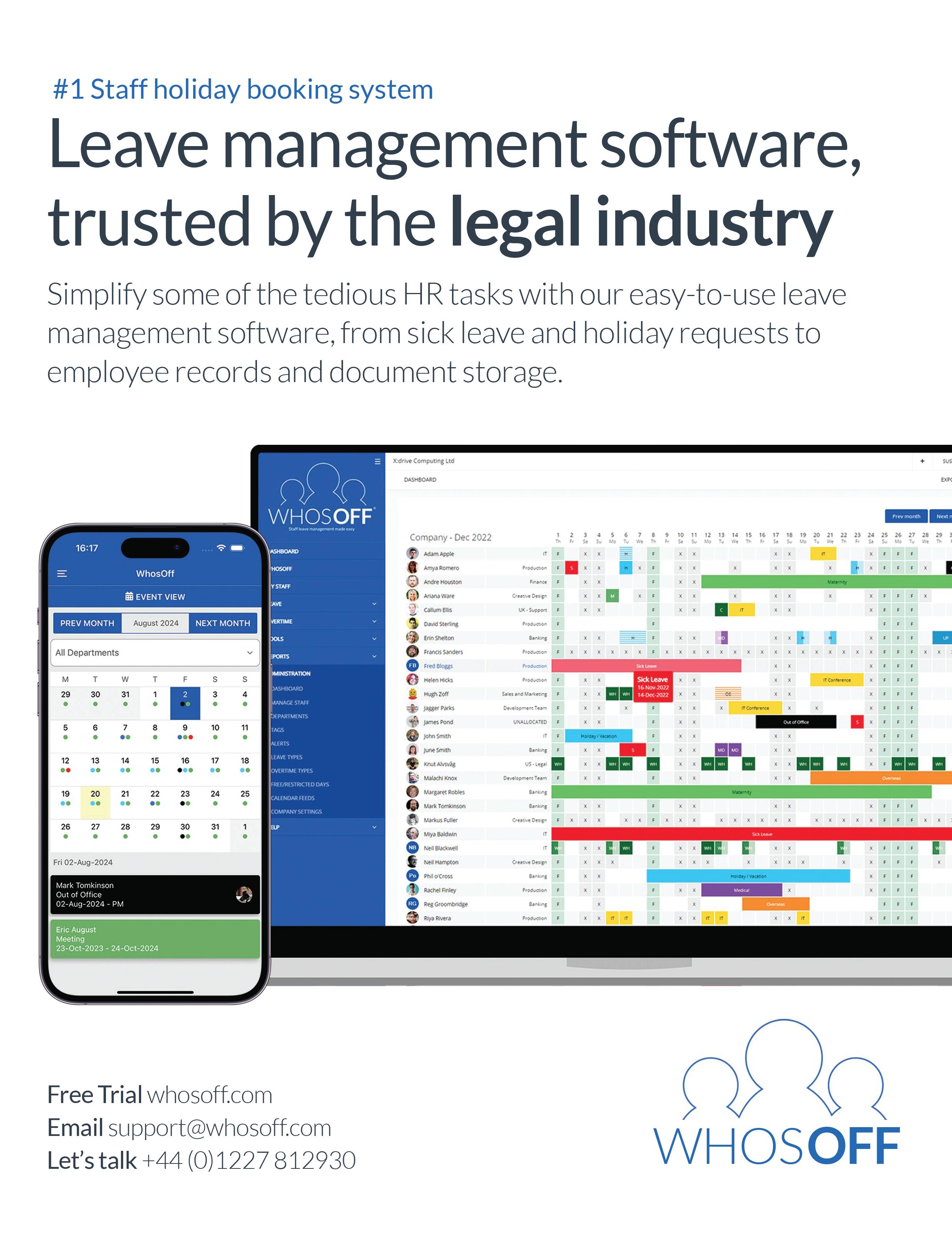

Awaab’s Law Update:


Council Members 2025
President Massimo Trebar of Lawtons (Criminal Lawyer)
Vice President Michael Scutt
Crane & Staples, Employment and Dispute Resolution
Hon Secretary and Treasurer Judith Gower
Immediate Past President
Kirsty Richards of National Legal Service (Family Lawyer)
Members
Steve Hamilton Taylor Walton LLP (Harpenden)
Private Client
Marilyn Bell SA Law (St Albans) Family
Paul Davies Hamilton Davies (Stevenage) Employment, Family and Litigation
Sylvia Goulding Perrin Myddleton Commercial Property
Claire Sharp
Debenhams Ottaway (St Albans)
Private Client
Penny Carey (University of Hertfordshire)
Neil Johnson Gisby Harrison
Suna Duzgan Fish & Co
Alexander McDowall Hertfordshire County Council
Nicola Smyrl of Taylor Walton (Luton and an Employment Lawyer)
(From January 2025 until 31 December 2025)
Laura Woolard of Taylor Walton (St Albans and a Family Lawyer)
Amanda Thurston University of Hertfordshire
Jane-Louise Burrows Fullers Family law
Amy Hodgson Whiskas LLP
National Council Member
Josephine Duchenne
National Council Member for Hertfordshire and Bedfordshire (from 15th October 2021)
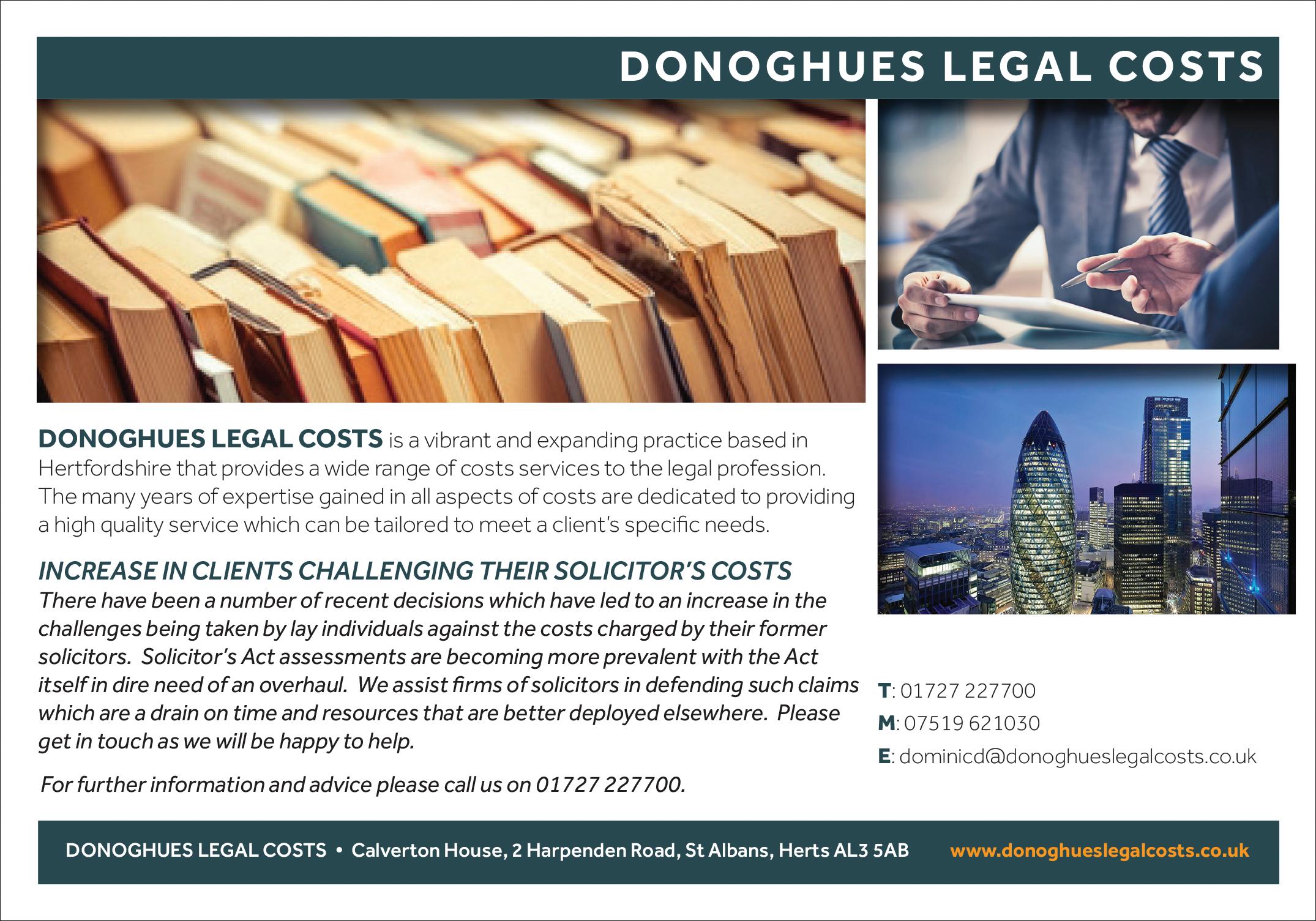
From the President...

Following on from my report ahead of our meeting in July, there have been a number of events taking place; As expected, things were a bit quieter over August with summer holiday season.
As we did last year, Herts Law Society again offered support for the Bucks Beds and Herts Society of Chartered Accountants summer BBQ which was an event specifically for young accountants and young lawyers, to bring them together and give them an opportunity to network with senior members of the two professions. That event was held on 24th July 2025 and was attended by some of the Hertfordshire Junior Lawyers Division, including Keira O’Connor, Royal College of Nursing, Blessing Skolodova-Foskett Marr Gadsby Head, Amy Tapping - Crane & Staples, and Judith Gower
On 18th September I attended the Hertfordshire Junior Lawyers Division BBQ at London Shenley Cricket Club, which was a great event, and brilliant gathering for young students, young lawyers; and other more senior lawyers such as myself. It was sponsored by Debenhams Ottway, and #5 chambers; and I was able to make a good contact with Jordan Zaza of No 5 Chambers. I was also able to make an acquaintance with George Scutt, Michael’s son, who was deputising for his father on this occasion. I also understand that this is the last function that Keira O’Connor officiates in her two year stint as president of Hertfordshire Junior Lawyers Division.

At the time of writing this report I am due to attend on 25th September the Local Law Societies conference (remote event), which is a lengthy series of discussions and break out forums spanning 4 hours. I am aware that that Michael Scutt and Judith Gower are also attending this event and can also provide feedback at Committee meeting.
I am also due to attend the Autumn Local Law Societies Luncheon - The Cosy Club, Birmingham on Thursday 2nd October 2025. This was a great event in Spring, which I unfortunately couldn’t make because there was a fire on my train line (!), which left me stranded for 3 hours. It is a fantastic opportunity to meet representatives from other local law societies, and I’m
hoping for more luck this time in my journey.
I am also due to attend a SAALS meeting in October, but a date has not yet been set for this.
In other news, Herts Law Society now has its own banner and QR code, thanks to Judith Gower for designing and organising.
And finally we are heading towards our annual general meeting in November, in which I can formally hand over the reins to my vice president Michael Scutt, for him to take over as president in January 2026.
Massimo Trebar President, Hertfordshire Law Society
Massimo Trebar with Keira O'Connor
What a mess

Alot of work has been done on the house and it's still a mess! The main thing is that my hooman mother has cleared out her walk in wardrobe and there is plenty of space in there.
My hoomans think it is great but when it was a mess it was a much better adventure playground.
There are still boxes everywhere, mainly full of things to be sold, or so they say.
There have been other people round to discuss other things to do. They’ve only lived in the house for 25 years and they have now decided to do things like
the heating system and apparently a new kitchen. I have not been included in any discussions although they did say that my food bowl had to be in the same position. They have not asked my permission at all.
My hooman mother has asked me to mention that there are changes to data protection legislation and she says to look at https://ico.org.uk/about-the-ico/ what-we-do/legislation-we-cover/data-useand-access-act-2025/
She typed that in not me.
@princessgigi2019
Approaching Qualification: Deciding Your Practice Area

The general premise of a training contract is to enable trainees to gain experience in multiple areas (whether it be three or four seats) over a period of two years so they can decide which area they want to specialise in once they qualify. Some go into their TC’s with a clear vision of where they want to go whilst others go into it with no expectations and decide purely based on their experience. It is common for people to have a change of heart (or several) and qualify into
areas they were sure were not for them at the outset. This is no surprise; it is a big decision and the last thing people want is to end up is having a career that is not quite for them.
Being a third seat trainee, I recently attended a Professional Skills Course module on strategic thinking and decision making. To apply what he had discussed to a real-world scenario, the attendees were asked about any puzzling situations they had been faced with. You guessed it – the trainer was flooded with scenarios and questions – all of which about deciding where to qualify. One moment we were discussing different decision-making systems, the next, the teacher was being asked to give what was detailed careers advice factoring in things like the trajectory of the real estate market… I really did feel for the poor man.
Enough of me talking about the size of the decision … how can trainees nearing qualification actually approach it? There

is a lot to consider, and it definitely does go beyond considering the letter of the law. At its highest it is helpful to think about the type of lawyer you want to be, but to do that you probably need to reflect on what kind of person you are (I know this does sound quite philosophical). Questions like “Do I want to be a litigator?”, “Am I a deal maker?”, or “Can I be a shoulder to lean on for someone at their time of need?” are good places to start. Gaining experience in multiple areas does help understand their nuances including the mechanics of different areas and the direction that area is heading in.
If I were to summarise one key take away from this, it would be to always keep the question of “What kind of lawyer do I want to be?” in your mind’s eye. Learning the law is important, but understanding the essence of your legal journey is going to help you decide where it takes you.
Keira O’Connor
Keira O'Connor

Awaab’s Law Update: Key Changes and what local authorities/social landlords need to know in 2025

Ihave summarised below the main changes in housing disrepair which will be coming into force on the 27 October 2025 by what is known as Awaab’s Law, what it means for social landlords and how claims should be handled going forward.
What is Awaab’s Law?
Awaab’s Law was named after Awaab Ishaq, a two-year-old who tragically passed away in December 2020 from respiratory illness linked to prolonged exposure to mould in his home in Rochdale.
Awaab’s Law is a new law which will come into existence through the Social Housing (Regulation) Act 2023 with detailed secondary legislation through The Hazards into Social Housing (Prescribed requirements) (England) (Regulation) 2025.
Awaab’s Law introduces strict new duties on social landlords which requires them to investigate and resolve hazards in tenants’ homes within set timeframes. This means from 27 October 2025, social landlords must be ready to respond to damp and mould hazards and emergency hazards in fixed timeframes. Failure to do so will pose a legal risk for social landlords.
What does Awaab’s Law mean for social landlords?
A new legal duty: the law will automatically add a contractual obligation and will form part of the social housing tenancy agreement. This will be an implied term in every tenancy agreement.
Therefore it is essential for social landlords to investigate and fix serious hazards within set legal timeframes.
Failure to adhere would mean that tenants can take legal action against the social landlord as they would be liable for breach of tenancy
What must social landlords do?
• must investigate any reported emergency hazard and if confirmed, undertake the relevant safety work as soon as reasonably practicable and within 24 hours of first becoming aware.
• must investigate any potential significant hazards within 10 working days of becoming aware of them.
• produce a written summary of investigation findings and provide this to the named tenant within 3 workings days of the conclusion of the investigation.
• if investigation identifies a significant hazard, undertake relevant safety work within 5 working days of the investigation concluding.
• if an investigation confirms a significant or emergency hazard social landlords must begin or take steps to begin any further required works within 5 working days . If this is not possible, work must start as soon as practicable and no later than 12 weeks .
• satisfactorily complete works within a reasonable time period.
• if relevant safety work cannot
be completed within specified timeframes the social landlord must secure suitable alternative accommodation for the household at the social landlord’s expense.
• keep the named tenant updated throughout the process and provide information on how to keep safe.
Failure to meet these obligations can leave a social landlord in breach of the law unless they can show reasonable endeavours have been made. Relevant factors might include:
• building is high risk, and works will need approval by building safety regulator
• unable to gain access
• unable to source specialist contractor or materials but the social landlord has made reasonable effort to do so
• reasonable efforts to secure suitable alternative accommodation, but no suitable properties
It is crucial to evidence steps taken to avoid breach.
Practical guidance for social landlords
To comply with the legislation and avoid legal risk, local authorities and social landlords should:
Internal
Staff training : train front line staff in having awareness of Awaab’s law, the scope of the law, to recognise damp and mould and understanding the risk thresholds
Record-keeping and documentation : keep clear records of investigations, findings, planned works and completions. Good record keeping is vital on how to monitor compliance with deadlines and completion of works. Review if policies will need to be updated to store written findings.
Farhana Begum
Investigations : regulations are clear that investigations must be carried out by a “competent investigator”. Social landlords must be clear on who that person is with the necessary skills and expertise in the organisation.
Set up or improve reporting systems: ensure tenant complaints or reports of hazards are logged promptly such as out of hours support, is there specific resources to deal with possible hazards that may come in during and out of hours service.
Temp rehousing : decanting is important, social landlords should
consider schools or pets and whether social landlords have temporary decanting properties available.
External
Budgeting/Procurement/Contractors : ensure there are enough contractors to carry out the work within timescales and ready to respond. It is advisable that they know what Awaab’s Law is and their duty.
Communication with tenants : it is important to communicate and educate tenants so that they are aware what to expect, how to report issues, what the
timeframes are and ultimately giving social landlords an opportunity to address and make arrangements to resolve the hazard.
To conclude, Awaab’s Law has been introduced to hold social landlords legally accountable to strict repair deadlines. This marks a major shift in social housing regulation, ensuring homes are safe, protecting tenants health and safety and ultimately saving lives.
Farhana Begum Trainee Solicitor Herts Legal Service

http://www.hertslawsoc.org.uk/
The Data Use and Access Act 2025 (DUAA):
Essentials for businesses

Therecent passing of the DUAA will result in further amendments to the UK General Data Protection Regulation (GDPR) and the Privacy and Electronic Communications (EC Directive) Regulations 2003 (PECR) over the coming months. Together, that legislation governs how organisations may process personal data and, particularly, the sending of direct marketing and electronic communications.
Fundamentals
This article is not a comprehensive summary of the DUAA but key takeaways include:
• Relaxation of some of the rules surrounding automated decision making, allowing such decisions to be made in a wider range of situations (providing that certain safeguards are implemented by the organisation).
• Amendments to bring more of PECR in line with the GDPR, including the raising of the maximum financial penalty (currently £500,000) to the higher of £17.5 million or 4% of the organisation’s annual global turnover.
• Extension of the purposes for which cookies may be used without opt-in consent of the individual.
• Extension of the “soft opt-in” exception under PECR to allow charities to rely upon this, subject to certain conditions.
Big picture
Whilst the DUAA demonstrates that the UK’s stance on data protection does not need to exactly mirror that of the European Union, in truth the forthcoming changes are far from seismic. Indeed, the EU is currently evaluating its own data protection legislation with a view to simplifying this in the context of ensuring small businesses remain competitive.
• A requirement that organisations make it easy for individuals to make complaints , including the provision of an electronic complaint form.
• Additional considerations for organisations whose online services may be of interest to children, in order to best protect those children.
• A new “recognised legitimate interests” limb of the “legitimate interests” lawful basis (whereby no balancing test is required) relating to specific scenarios such as emergencies and the safeguarding of vulnerable individuals.
• Tweaks to the rules around (i) intergroup company transfers and (ii) international transfers of personal data, although in both cases these changes may not be particularly impactful.
• Clarification that an organisation’s response to subject access requests ( SARs ) need only be “reasonable and proportionate” and a new right for the organisation to pause the response clock where it requires additional information from the requester.
The UK is also unlikely to stray too far from the EU’s data protection line as it is keen to protect its status as an “adequate” country (post-Brexit) for the purpose of the free flow of personal data from other EU members to the UK. The European Commission recently extended its adequacy decision in respect of the UK to 27 December 2025, which is another positive step for UK businesses.
Ultimately, businesses need to keep a careful eye on the evolution of data protection law, including how the DUAA is applied. This is best achieved by reviewing guidance released by the Information Commissioner’s Office (reformed and renamed as the Information Commission) from time to time and, most importantly, by way of specific guidance from legal advisors.

Peter Kouwenberg
Partner & Head of
Commercial,
Taylor Walton LLP Peter.Kouwenberg@ taylorwalton.co.uk
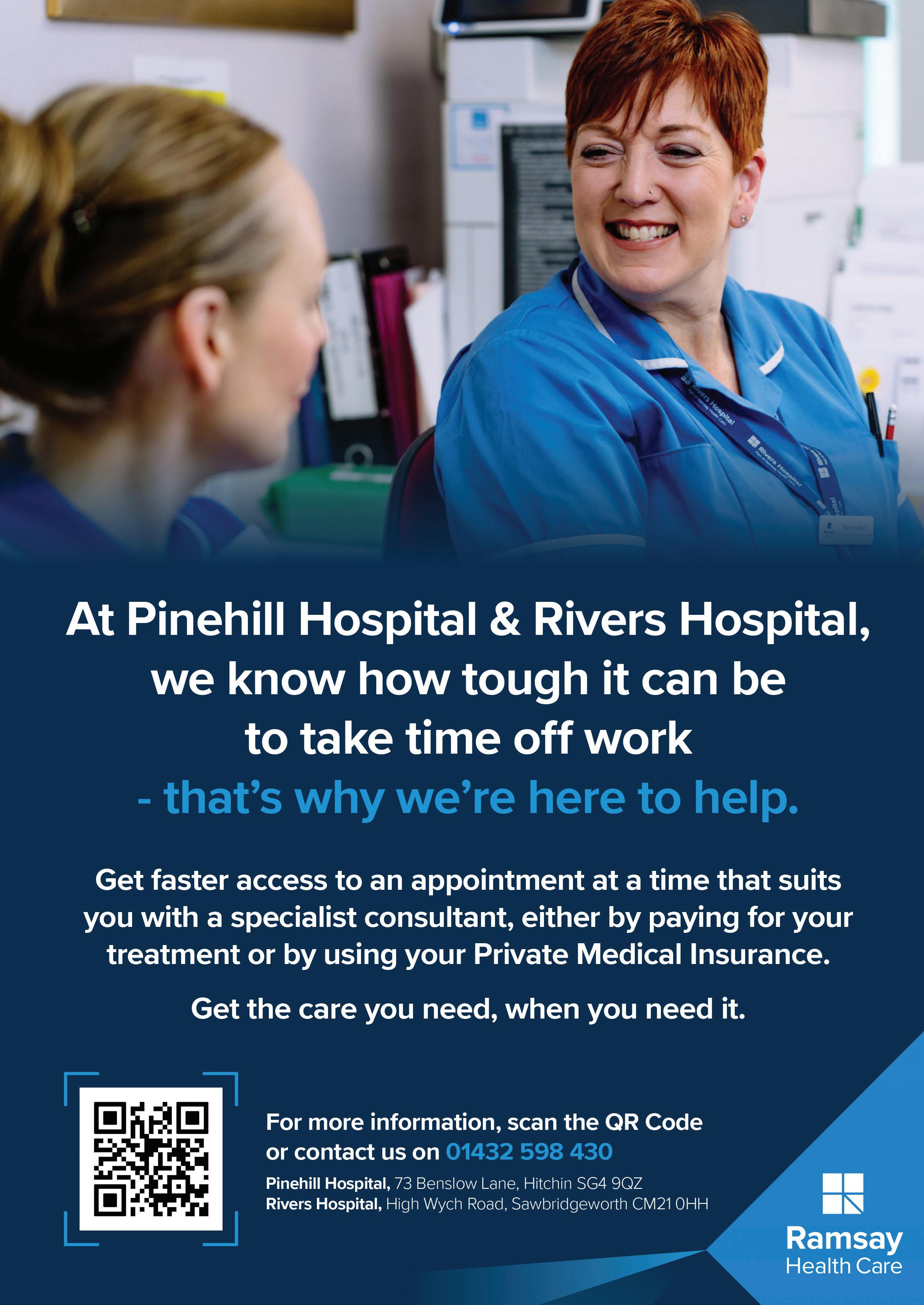
New Research Reveals Prevalence of Charitable Legacies Among the UK’s Wealthiest
• 50% of high net worth individuals have included a charitable gift in their Will
• Charitable Will Trusts and Donor Advised Funds used by one in three millionaires
• Legacy giving is more prevalent amongst millionaires with children than those without; a contrast to mass market trends
New research from Remember A Charity, the UK’s national legacy giving campaign, reveals the prevalence of charitable gifts in Wills amongst high net worth individuals (HNWIs), highlighting the opportunity for further growth.
Charitable legacies prevalent
The study, commissioned by Remember A Charity and conducted by independent research firm Savanta1, surveyed 500 people with over £1 million in investable assets. It reveals that half (50%) of millionaires have already included a charitable gift in their Will, rising to 75% for those with estates of £5 million+.
Noting that legacy giving amongst high net worth individuals may extend beyond a simple donation in a Will, the research finds that nearly one third of the group (32%) have established a charitable Will Trust, and three in ten (28%) donated using a Donor Advised Fund (DAF).
There are generous tax incentives in the UK for those who leave a charitable gift from their estate2. Donations are tax-free and if 10% or more of the net value of the estate is donated this can reduce the Inheritance Tax rate from 40% to 36%.
Amongst those millionaires who have not included a charitable legacy in their estate plans, the large majority (58%) say they are open to doing so and just over 1 in 4 (26%) said that they simply hadn’t thought about it before. This indicates there is opportunity to engage this audience at the Will-planning stage.
Percentage gifts
Although only around one quarter of millionaires (26%) say they have prepared to leave a percentage of their estate to charity, rather than pledging a fixed sum, many more (40%) say they would be willing to donate a share of their estate. With market studies showing that around 90% of legacy income comes from residuary gifts3 and that high value estates are driving up legacy values, this demonstrates the importance and potential impact of increasing percentage gifts in this market.
Family dynamics and intestacy
In contrast to mass market trends, where child-free individuals are twice as likely as those with children to leave a charitable
gift4, this study finds that – for high net worth individuals –gifts in Wills are more prevalent for those who do have children (50%) than for those who don’t (42%). This indicates that, at this level of wealth, individuals may well recognise they are able to both secure their family’s future and provide support for charitable causes. This may also reflect the fact that intestacy tends to be higher amongst those without dependents, with 1 in 5 saying they don’t have a Will and have no plans to write one.
The research showed a surprising lack of up-to-date Wills amongst a demographic that is likely to leave considerable wealth to the next generation. Only 3 in 10 (31%) of millionaires have an up-to-date Will, and over one third (35%) of those aged 55-65 don’t have a Will at all. One quarter of the millionaires in this study say they are in the process of writing or updating their Will, reinforcing the opportunity to integrate charitable giving into estate planning.
“Charitable legacies are hugely valued across the sector, no matter

the size of the gift or estate. But these insights into the high value legacy market reveal that legacy giving is even more prevalent in this space than many of us will have anticipated,” says Lucinda Frostick, Director of Remember A Charity.
“While this is certainly encouraging for charities, many of which are becoming increasingly reliant on donations from those with wealth, this also helps to reinforce to professional advisers just how relevant philanthropy is to their client base – and how crucial it is that they can support their clients in achieving their charitable legacy.”
Remember A Charity has developed a range of resources, case studies and practical tips for wealth advisers5, alongside materials for solicitors and Will-writers6, equipping them to explore the topic of legacy giving with clients. A new training programme for wealth advisers will launch this Remember A Charity Week7 (08-14 September 2025).
Professional advisers are encouraged to use the platform of Remember A Charity Week as an opportunity to raise the topic of legacy giving with clients.
To find out more, visit the campaign website.8
1 Savanta / Remember A Charity, High Net Worth Legacy Study, 2025
This research on the high net worth audience was commissioned by Remember A Charity and conducted by Savanta, as part of its MillionaireVue omnibus study. The sample included 500 people with over £1 million in investable assets (high net worth individuals). The fieldwork was carried out from February to March 2025.
2https://www.rememberacharity.org.uk/making-a-will/faqs-about-wills/ faqs-inheritance-tax/
3https://144850878.fs1.hubspotusercontent-eu1.net/hubfs/144850878/ LTR/The%20Legacy%20Giving%20Report%202025%20-%20 Smee%20and%20Ford%20and%20Legacy%20Futures.pdf
4 Remember A Charity / OKO Stages of Change Benchmark Study, 2024
5https://www.rememberacharity.org.uk/about-us/for-wealth-advisers/
6https://www.rememberacharity.org.uk/about-us/for-solicitors-willwriters/
7https://www.rememberacharity.org.uk/about-us/remember-a-charityweek/
8https://www.rememberacharity.org.uk/about-us/remember-a-charityweek/

How should Experts disclose criticisms when they
are frequently
unaware of the outcome of the case?
The judgement from The Honourable Mr Justice Trower in JSC Commercial Bank Privatbank v Igor Valeryevich Kolomoisky & Ors presents a number of interesting learning points for Expert Witnesses. But we have been particularly struck by the assertion that Expert Witnesses have a duty to disclose previous criticisms of their evidence in judgments.
What the judge said
“In two previous cases, Pindell Limited v. Airasia Berhad [2010] EWHC 2516 (Comm) and ACG Acquisition XX LLC v. Olympic Airlines [2012] EWHC 1070 (Comm), Mr S’s evidence had not been accepted by judges of the Commercial Court. In the second of those cases, ACG (at para 50), Teare J had held that Mr S had not given sufficient consideration to his duty to the court not to omit matters which might detract from his stated opinion, having regard to some of the findings made by Tomlinson J in Pindell. The consequence of this in ACG was that Teare J was unable to rely on his evidence, save when accepted by the other expert.
These criticisms took on a further level of significance in light of the judgment in Peregrine Aviation v. Laudamotion [2023] EWHC 48 (Comm) at [22], in which it was noted by Henshaw J that “Mr S ought to have disclosed criticisms of his evidence in two previous judgments as part of or in conjunction with his expert report in that case”. Henshaw J’s judgment was handed down on 17 January 2023 but, despite this timely reminder of his duties, it was only six months later, a mere three days before his cross-examination in these proceedings, that Mr Kolomoisky’s solicitors disclosed to the Bank’s solicitors what had been said. In cross-examination, Mr S said that he thought he had forwarded what had been said in Peregrine to the lawyers at an earlier stage. I have no means of knowing whether he did in fact do so, but I consider that he should have ensured that this information was made available to the Bank and the court much earlier than he did. In that respect he
was in breach of his own personal duty to the court. This failing made an evaluation of the credibility of his evidence a more difficult task than would otherwise have been the case.”
Fair assertion?
Most experts will tell you that they are frequently unaware of the outcome of cases, let alone being sent copies of judgments that they have been mentioned in. This problem pervades the justice system and even extends to the Family Courts where there is a specific requirement for the Instructing Party to “send to the expert a copy of the court’s final order, any transcript or written record of the court’s decision, and its reasons for reaching its decision, within 10 business days from the date when the party received the order and any such transcript or record.” (Family Procedure Rules Part 25.19)
The Criminal Courts are at least a little kinder. The Criminal Procedure Rules r 19.2(3) refer to the expert’s duty to “disclose to the party for whom the expert’s evidence is commissioned anything of which the expert is aware.”
But it seems somewhat unfair to say that Expert Witnesses have a duty to share this criticism since this is infrequently shared with them.
If you are aware of criticism
Of course, if you are aware of any criticism you would be wise to make your Instructing Party aware of it. The last thing you want is for your credibility to be attacked by opposing counsel who have researched previous cases in which you have been mentioned.
The good news?
Just because you were criticised before, it doesn’t mean that you cannot redeem yourself. In considering another expert’s evidence, the judge wrote:
“In a judgment I gave in unrelated litigation
(Bank St Petersburg OJSC v. Arkhangelsky [2022] EWHC 2499 (Ch) at [472]), I had criticised the quality of Mr Thomas’ evidence as betraying a marked failure to recognise that his role was to assist the court by an independent and dispassionate statement of his views without descending into the arena to argue the counterclaimants’ case on their behalf. Not surprisingly, he was taxed with this in crossexamination and accepted that the criticisms I had made of his evidence in that case were fair. However, his evidence in these proceedings was in marked contrast to his evidence in the Bank St Petersburg case. While he was firm in the views that he expressed, he did not cross the line into advocacy and explained the concepts on which he relied with clarity. He was confident in his opinions, and justifiably so. My overall impression was not just that he knew what he was talking about, but also that he addressed the issues with which he had been asked to deal in a fair and balanced manner.”
Learning points
So the key learning points are:
• Do ask your Instructing Party for feedback and to send you a copy of any judgment, particularly if you gave evidence in a court/tribunal.
• If you are aware of any previous criticism, you should declare this to any Instructing Party.
• If you have been the subject of criticism, take the time to reflect on the criticism and consider how you might amend your practice. Undertake further training where necessary.
Link to judgment
https://www.bailii.org/ew/cases/EWHC/ Ch/2025/1987.html
Simon Berney-Edwards EWI


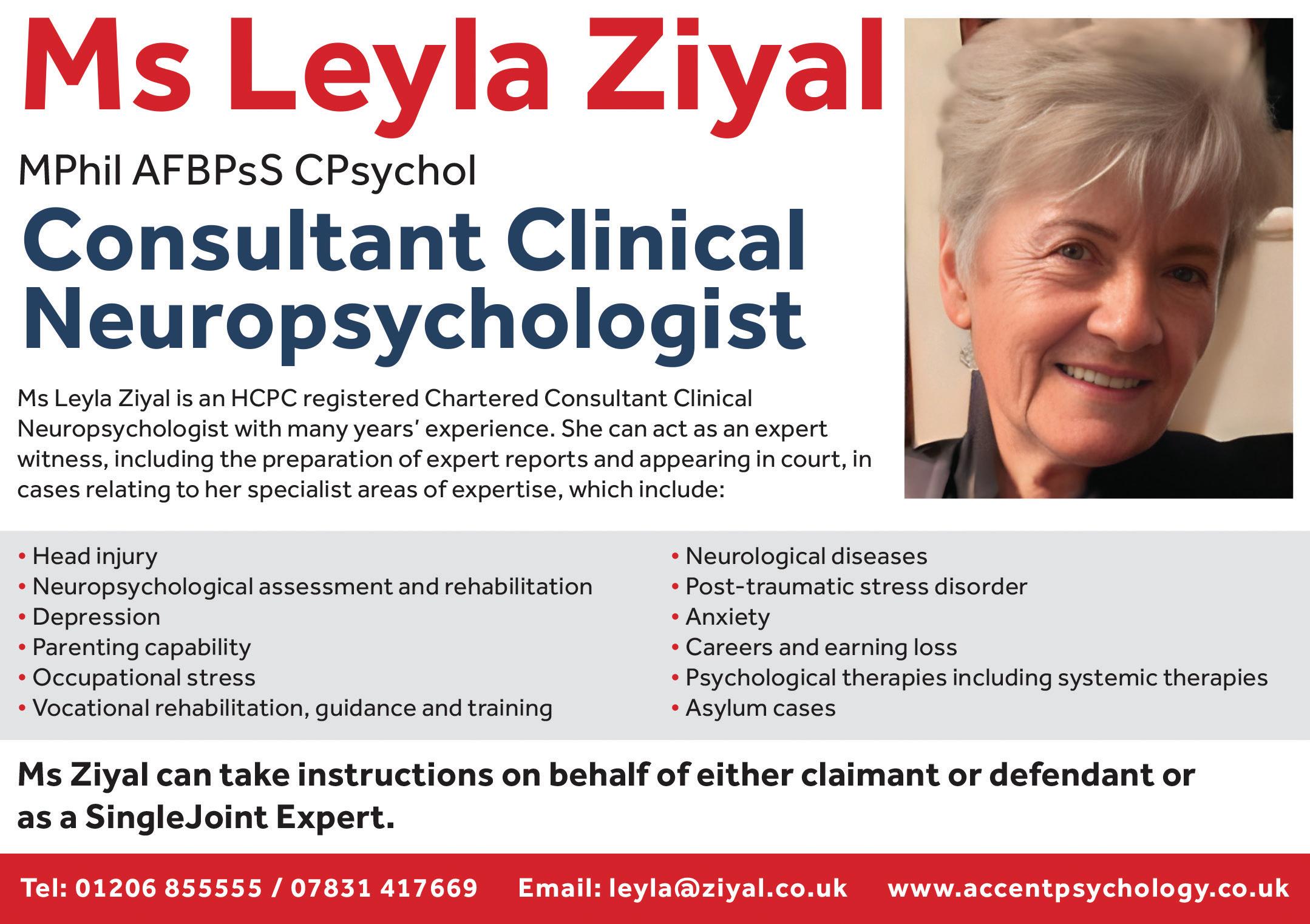
The Expert Witness Institute and Expert Insight Announce Strategic Partnership to Elevate Standards for Psychologists

The Expert Witness Institute, the UK’s leading body for expert witnesses, is proud to announce a new partnership with Expert Insight, a community dedicated to supporting registered psychologists working as expert witnesses. This collaboration will enhance professional development and support for this vital group of specialists.
The partnership aims to combine the EWI’s robust framework for legal and professional standards with Expert Insight’s tailored clinical, psychological, and peer support. By working together, the two organisations will help ensure registered psychologists who serve as expert witnesses are equipped with both the essential legal training and the specialised clinical support needed to excel.
“The EWI is committed to supporting the proper administration of justice through high-quality expert evidence,” said Simon Berney-Edwards, CEO of the EWI. “Our partnership with Expert Insight will allow us to directly address the specific needs of registered psychologists, ensuring they have access to a complete range of resources— from formal legal training and accreditation to practical tools and resources that
strengthen the clinical skills of expert psychologists —that is crucial for their work in civil litigation.”
Expert Insight was created to meet the unique challenges faced by registered psychologists in the expert witness field. Its mission is to provide accessible, practical, and responsive support, focusing on short-form clinical content and diagnosis-specific guidance.
“Expert Insight was founded on the principle of developing a strong, supported community for registered psychologists,” said Dr Kathryn Newns, co-founder of Expert Insight. “We are strong advocates for the EWI and its role as the benchmark for best practice. This partnership is a natural fit, allowing us to complement EWI’s legal and professional training by signposting our members to their key offerings, while we focus on the development of clinical skills within the legal context.”
Through this new alliance, the organisations will work together to broaden the pool of qualified experts and enhance the reputation of expert evidence.
About The Expert Witness Institute
The Expert Witness Institute (EWI) is
the UK’s leading membership body for expert witnesses from all professional disciplines and the lawyers who use their services. The EWI’s mission is to support the proper administration of justice and the early resolution of disputes through high-quality expert evidence. All members are subject to a strict Code of Professional Conduct and Practice.
About Expert Insight
Expert Insight is a community created to support registered psychologists working as expert witnesses in civil litigation. It aims to develop expert witness clinical skills and provide clinical, psychological, and peer support that is specific to this area of work.
Heather George EWI
Contact:
Simon.berney-edwards@ewi.org.uk / 020 3880 0064
susie.oconnor@apsy.co.uk / 01223 803793

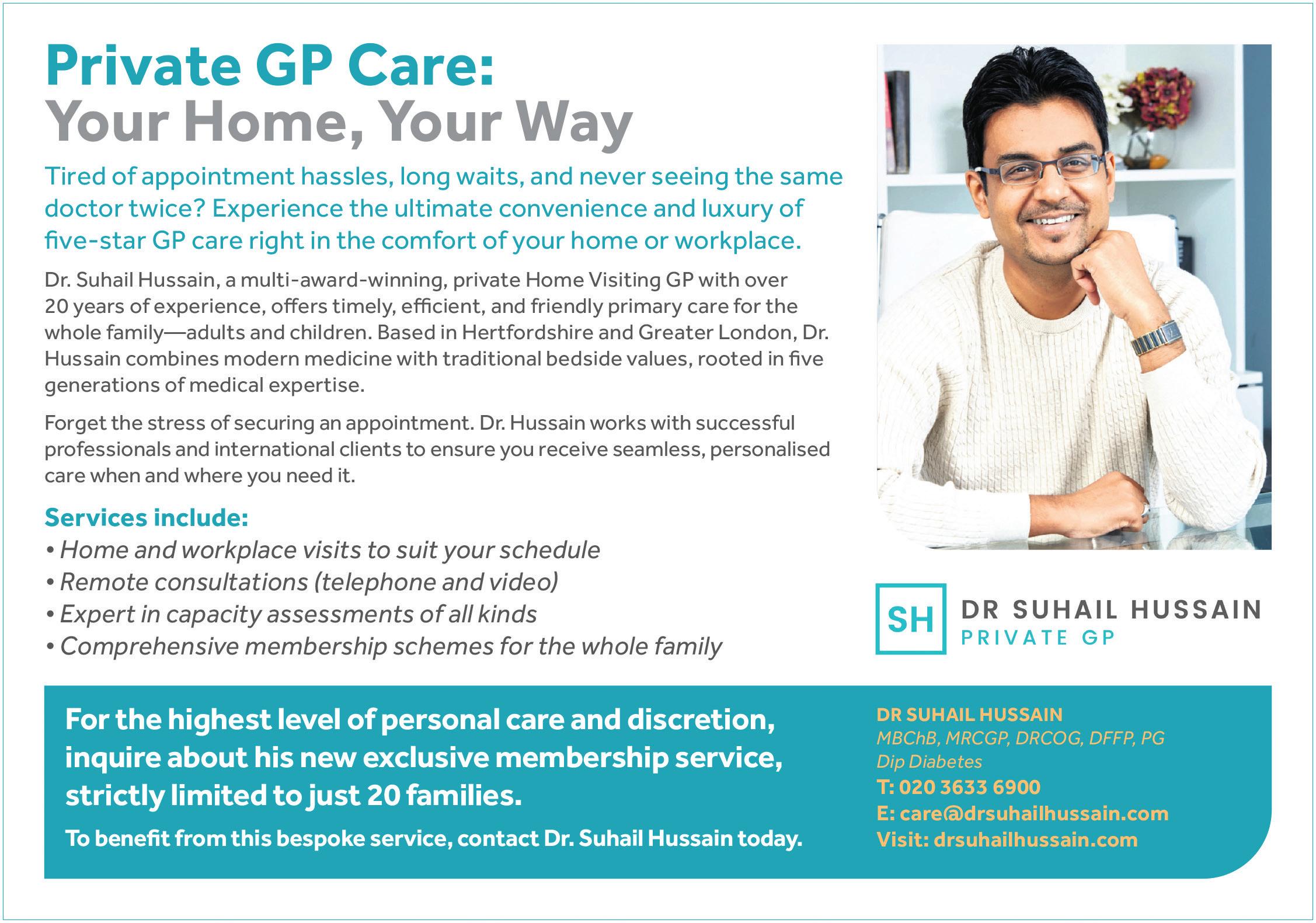

Faces of expertise: Meet our Two Experts

At FHM Forensic Accountants we have two experienced experts in the team. Both Fiona and Tom take instructions and focus exclusively on forensic accounting and business valuations. We typically accept 60 to 70 instructions annually and most are as expert witness. We also take instructions as Single Joint Expert, Party Expert and Shadow Adviser, and prepare business valuations for tax planning and commercial purposes.
Team members Kirsty Shuckford and Graham Hines help our experts and, beyond FHM, we work with a wider team of professional contacts when specific input is needed such as on international tax.
In this article we asked the Experts to give some insight into what makes them tick.
What do you enjoy about forensic accounting and expert witness work?
Fiona: I enjoy the challenge of working through a tricky financial dispute or valuation - large or small - and putting together a report that is clear, concise and credible. It is important to me that our reports are understandable to all parties and their legal counsel. At the outset of a new instruction, it can be quite daunting but by methodically working through the financial disclosure and technical arguments, the most complex issues often become relatively simple.
Tom: Without doubt it is the variety of different cases that we take on. No case or

day is the same so it keeps things fresh and interesting. There is also a strong sense of satisfaction when our reports can help clients settle their disputes and result in a fair resolution.
What is the most challenging aspect of your work?
Tom: When a particularly complex case comes along, it can be challenging to determine the most suitable approach to take as there is no “rule book” for forensic accounting. This means taking each case on its own merits and sometimes thinking outside of the box to ensure that specific characteristics of the case and their impacts are fully considered and well-evidenced. Whilst this is no doubt a significant challenge of the role, it can at the same time be very rewarding to present an argument that perhaps the client or their instructing solicitors had not identified.
Fiona: Managing several ongoing cases and unpredictable deadlines and client requirements. At FHM we work closely as a team and the added resource helps alleviate that stress and allows us to maintain the high service levels that we set ourselves to ensure we deliver to the agreed timetable at each stage of a financial dispute.
How do you find working in a specialist independent practice (FHM)?
Fiona: It has been great to start the practice from fresh adopting the latest technology
and best practices without the challenges of historical systems or internal politics. A focus on our key values has allowed us to build a sustainable practice which delivers the service we aim for and allows each team member flexibility.
Tom: I really enjoy the autonomy and flexibility that comes with a specialist independent practice. As a small but close-knit team we are able to adapt to meet the various demands of ongoing cases and can manage our own workload independently. This allows for flexibility and promotes a good work-life balance as much as possible whilst ensuring a high level of client service.
What is your top three tips for instructing lawyers?
Fiona: (1) In a commercial dispute I recommend early engagement with your expert as early input on the quantum of a dispute tends to help contain costs; (2) In family cases, I recommend thinking about making more use of shadow experts, both on disclosure and to review the Single Joint Expert Report; and (3) attend our regular free webinars for more tips on valuation, tax and demystifying company accounts, and our recent case studies (contact us via the website to join the invite list)
Tom: (1) In the case of business valuations, obtain full statutory accounts with detailed profit and loss statements as early as possible. If these can be provided upon initial instruction, then it can save a lot of time and also enables us to quickly get a grasp of the key issues and provide a more reliable quote for our work. This gives both lawyers and their clients a bit more certainty during what can be a very uncertain process.
(2) Always ensure that instruction letters are clear and unambiguous. Sometimes instructions can be interpreted in several ways so it helps to be clear on requirements from the outset to prevent any unnecessary delay in the process.
(3) Maintain full and transparent communication with the expert
Fiona Hotston-Moore
Tom Arnold
throughout the process. If we are fully informed of the position of cases and made aware of any potential delays with, for example, the provision of information then it can make the process much more efficient and cost-effective. If we know the latest position of each case and its likely timeline, then we can manage our workload and ensure we are in position to prepare our report on a timely basis in line with the lawyers’ anticipated timescales.
How do you see FHM developing over the next year?
Tom: I am now beginning to take on assignments in my own name as a second expert in the firm in addition to Fiona. This is an exciting development and I anticipate that by the end of the year I will have a good variety of cases under my belt in my own name. Having worked with and learnt from Fiona for many years, I have gained significant experience in a broad range of matters and am looking forward
to putting my own name to reports and assisting clients in my own right.
I would also hope that growth of the team would be a natural consequence of having an additional expert and therefore would hope to expand the team within the next year.
Fiona: I am very proud to see what Team FHM has already achieved. I look forward to seeing Tom develop his career further as an expert and issuing reports in his own name. Alongside Tom, I am delighted to see the contribution Kirsty is already making to FHM. I hope we will see another year of growth both in terms of expansion of the team and continuing to build new relationships with instructing lawyers in family law and dispute resolution across the East of England, the UK and beyond.
The work can be stressful and time pressured. How do you wind down after work?
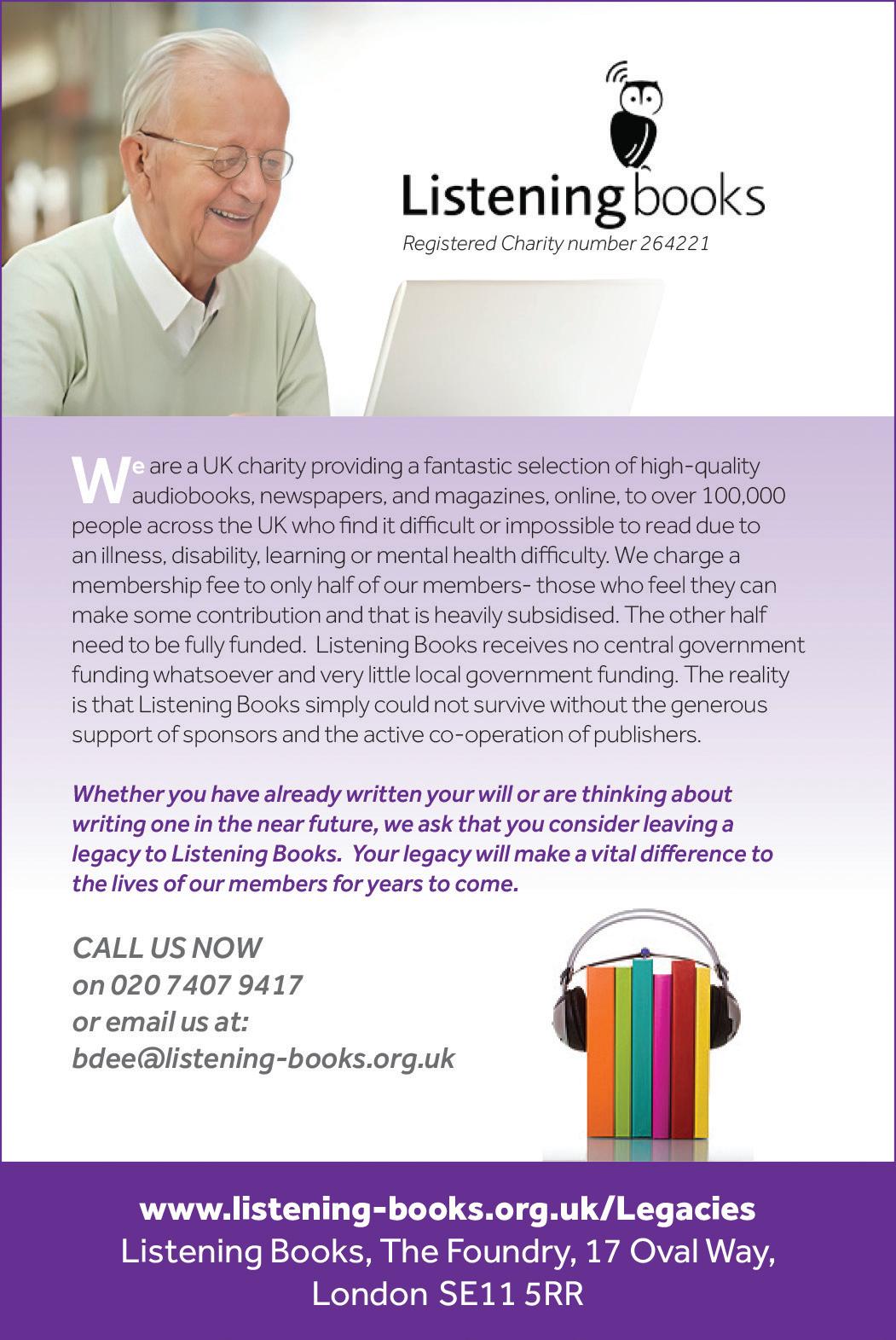
Tom: I always make sure to find time in my day to get out and get some fresh air whether that is a walk or a run. It helps clear the mind and sometimes this is when the best ideas for solving a particular issue come to me. I also have a two-year-old son who keeps me on my toes and seeing him at the end of the day quickly helps me switch out of work mode.
Fiona: I enjoy travel and with the benefits of technology, it is great to be able to work anywhere in the world. This year has seen me sitting at my desk in 20 countries.
fiona@fhmforensic.co.uk
+44 (0)7770 642491 www.fhmforensic.co.uk


The legal industry is experiencing a talent shortage


“T
he legal industry is experiencing a talent shortage, with firms competing for skilled lawyers and staff. This is exacerbated by factors like burnout, work-life balance demands, and lawyers leaving the profession. With each lost associate representing an estimated $1 million loss, stemming the tide of attrition is key”

So starts the recent report from BigHand into the legal profession.
The other most striking fact that you may have seen from the report is that associates (junior and senior) were leaving at rate of 9% in 2024 . In quarter one of 2025 that had gone up to 16% and 17% respectively .
That is a huge drain on new legal talent. Couple that with the trend for people to retire early since covid, and the market is being squeezed from each end. The report goes on to say that the top reasons for leaving were given as issues of professional development (26%) and issues of salary (23%) – this was particularly noted among senior associates. I have written before about the salary bunching and senior associates are perhaps the ones who suffer the most when juniors come in on large salaries that they themselves had to work years to achieve. Also stated
were hybrid working (22%) and work/ life balance (20%).
Never has getting hiring right been more important, and never has it been so important to look after existing staff in order to retain them. Arguably also the ‘demands’ of people are relatively ordinary, career progression, salary, hybrid working and work life balance are not rocket science, but really do matter.
If you want to talk about how you can maximise your recruitment and retention within your firm then please do get in touch. It’s a subject I am passionate about! Also take a look at our YouTube Channel for a recent discussion on this topic – “Law Firms: Recruitment Won’t Fix Your Problems!”
Clara
Rose LLB LLM
Clara Rose Consultancy www.clararoseconsultancy.co.uk
020 3286 7884
Clara Rose

Pension Assets to Fall into the IHT Net by 2027: What Solicitors Should Be Doing Now

From April 2027, unused pension funds and death benefits will become liable to Inheritance Tax (IHT) – a significant shift that will impact thousands of clients who believed pensions sat safely outside their estate.
For solicitors advising high-net-worth individuals, this is no minor technical change. It cuts to the heart of many clients’ estate planning strategies and could see beneficiaries facing tax rates of over 60% without timely intervention.
Why this matters
Until now, pension assets – including SIPPs and defined benefit lump sums – have been widely used to pass wealth across generations, free of IHT. This favourable treatment ends in April 2027, when these assets will become liable unless left to a spouse or civil partner.
Importantly, the scheme administrator will be responsible for reporting the value of death benefits and settling the IHT bill – but the impact will be felt by clients’ families. This change creates not only a new liability, but also the risk of double taxation, with IHT potentially stacked on top of income tax.
For example: A child inheriting pension funds after a parent dies post75 could face 40% IHT and income tax at 45% – an effective tax rate of up to 67%. This demands a rethink of longstanding advice and a renewed focus on collaborative planning between legal and financial advisers.
Key steps for solicitors
1. Revisit income strategies and the “pensions last” approach
Clients have traditionally been advised to leave pensions untouched for as
long as possible. That may no longer be optimal. Drawing on pensions earlier in retirement – especially while clients are in lower tax bands – could reduce overall tax exposure and prevent pension funds from growing into a future IHT problem.
It’s essential that your clients seek independent financial advice before adjusting their drawdown strategy.
2. Use tax-free cash while it’s still available
The 25% tax-free lump sum is a valuable benefit – but from 2027, if left untouched, it becomes part of the taxable estate. Clients intending to gift to family should consider using this allowance now.
Solicitors can assist with documenting gifts and ensuring they align with Wills and other lifetime planning.
3. Strengthen lifetime gifting strategies
Gifts from excess income (immediately IHT-free) and Potentially Exempt Transfers (PETs) should be reviewed now, while clients are healthy and the 7-year clock can start ticking.
These should always be coordinated with the client’s financial planner to assess sustainability and avoid cashflow issues in later life.
4. Consider insurance to cover IHT liabilities
Where gifting isn’t appropriate, a whole-of-life insurance policy held in trust can provide funds to settle the IHT bill, including tax arising from pension assets, without needing to access illiquid assets, such as needing to sell property.
5. Review death benefit nominations and bypass trusts
Expressions of wish forms must be up to date, and solicitors should understand whether pension death benefits will be caught by the new rules – even when payable at trustees’ discretion.
There is still uncertainty around how
bypass trusts will be treated post-2027, and specialist advice is key.
Don’t wait until 2027
Although the change takes effect in April 2027, the planning should start now. Some of the most effective strategies – such as lifetime gifting or restructuring drawdown – take years to bear fruit.
Solicitors are in a unique position to prompt action. By identifying clients with substantial pensions, complex estates, or existing estate plans built around the old rules, you can add real value.
It is essential that your clients speak to an independent financial adviser to audit their estate and revise their longterm plans in light of these changes.
Final thoughts
For many clients, pensions have long been the tax-efficient “safety net” of the estate. From 2027, that net could turn into a trap. Legal and financial professionals must now work together to ensure clients aren’t caught out –and that their wealth passes to the next generation as intended.
Joe Fisher , Chartered Financial Planning Manager at Lumin Wealth
Stay Informed with lumin news
For expert financial insights and updates, visit our website and sign up for lumin news at www.luminwealth. co.uk or scan the QR code below.

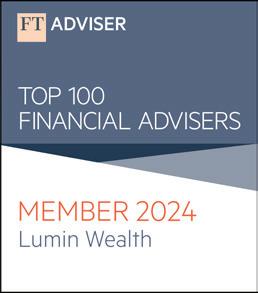


Book Review
MAKING LAWFUL DECISIONS
A guide for decision-makers on acting within the law
By Victoria Butler-Cole KC and Steve Broach KC
ISBN 978 1 91364 862 6
LEGAL ACTION GROUP
The access to justice charity www.lag.org.uk
Lawyer or not, a decision maker needs to know the law
If you have found yourself — or your client — in the position of being appointed as a decision-maker over a number of issues in either the public or private sectors, you need this book, recently published by the Legal Action Group (LAG), the access to justice charity, who are justly famed for producing legal texts accessible not only to lawyers, but to the average concerned reader.
Pertinent, applicable and directly accessible to lawyers and non-lawyers alike, this book emerges as an essential
An appreciation by Elizabeth Robson Taylor MA of Richmond Green Chambers and Phillip Taylor MBE, Head of Chambers, Reviews Editor, “The Barrister” and Mediator.
guide — no doubt about that — to both the basics and the possible and probable complexities which, more often than not, are likely to emerge in the decisionmaking process.
With depth and clarity, a wide range of issues are discussed, with a focus on the most controversial, including for example, cases pertaining to equality and human rights. The book therefore covers a lot of ground in explaining an extensive and complex subject, with the thoroughness and clarity that makes it accessible to all decision-makers — lawyers and non-lawyers alike.
As the LAG explains, the book’s overall aim is to ensure that “a decision-making process follows a lawful process.” And that includes, appropriately, answers to the problems of those who are aggrieved by a decision and therefore considering a complaint, or a legal challenge.
The first chapter to turn to is the ‘Checklist’ and an invaluable checklist it
is. Certainly, it covers such necessities as powers, problems, evidence and much, much more, including what to do if your decision is challenged — a challenge indeed.
Certainly, this compact volume provides a treasure trove of useful resources for further research. Note the almost twenty pages of Tables of Cases plus the Table of Statutes and Statutory Instruments - and a Table of European and International Instruments. Also note the handy index, the glossary of legal terms and the extensive footnotes — indispensable if more detailed research is required — and it usually is, in so many circumstances.
“A guide for decision makers on acting within the law” is the book’s subtitle and an excellent guide it is. Any lawyer advising clients embroiled in these or similar problems should very quickly acquire a copy.
The date of publication of this paperback book is cited as July 2024.

Life in the Law 2025
Act now and lead the way to a sustainable future
The legal sector has the opportunity to change for the better. Life in the Law 2025, LawCare’s latest research, shows that if we act now, we can create a sector where people feel supported, can build sustainable and successful careers, and where mental health and wellbeing are valued as an integral part of everyday working life culture.
What the research tells us
From January to March 2025, we asked people across the sector how working in law affects their mental health and wellbeing.
The research showed that there has been progress in some areas:
“More openness to talking about mental health. More access to counselling, wellbeing coaching and therapy services. More senior people being open about their own mental illhealth.”
A senior solicitor also reflected:
“Working from home has been a game changer in terms of managing childcare and managing my disability. I love it and it has prolonged my career by 10 years.”
Yet the findings show there’s still work to do:
• 56% said they could see themselves leaving their current workplace within the next five years, with 32% saying they could leave the sector entirely.
• Nearly 60% reported poor mental wellbeing.
• Almost 79% said they regularly work beyond their contracted hours.
• Only 31% of people who managed others said that their targets or billable hours were adjusted to take into account the time they need to spend managing others or undertaking appropriate training.
The quotes behind these statistics speak volumes. A licensed conveyancer told us:
“I would like to leave but couldn’t afford to and don’t know what else to do.”
A senior solicitor in England said simply: “More work, shorter deadlines, fewer lawyers, higher pressure, more greed.”
Others pointed to long hours. One junior solicitor said:
“Monday to Friday my days are filled with work from getting up to going to bed after midnight, so there is no time for any other activity.”
The need for stronger people management came through strongly in comments. One person said:
“People management is a special skill… it does not follow that because someone is a good lawyer, they are a good manager.”
Why mental health and wellbeing matters
When people in the legal sector are healthy and well, the whole profession benefits. Lawyers who feel supported are more focused, better equipped to handle pressure, and able to make sound ethical decisions. They bring clarity of thought, stronger relationships with colleagues and clients, and the energy needed to do their best work.
But when wellbeing is neglected, the effects ripple out far beyond the individual. High levels of stress and burnout can lead to increased sick leave and people leaving their jobs - or even the profession altogether. Overwork and exhaustion raise the risk of errors, which in turn can compromise judgement and ethical decision-making. Over time, this doesn’t just harm careers, it undermines confidence in the whole sector, damaging both reputation and public trust.
What can help
The good news is that there are clear, practical steps that can make a real difference. The report highlights five key areas for action:
1. Tackle overwork – manage workloads, rethink targets, and challenge the culture of long hours.
2. Support managers – train and support people to manage
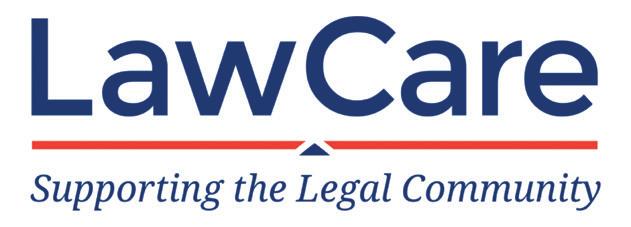
effectively and recognise that management is a vital skill.
3. Offer flexibility – embed hybrid and flexible working in ways that support diverse needs.
4. Check what works – regularly review wellbeing initiatives and adapt as necessary.
5. Properly prepare future lawyers – equip students and trainees with the appropriate skills they need for a sustainable career.
Leadership is key
As LawCare CEO Elizabeth Rimmer says: “We have it in our hands to transform the way we work and build a future where people are supported to perform at their best and build sustainable careers. The path to prioritising mental health and wellbeing before us is clear. Now is the time for leaders to act with courage: move away from practices that normalise overwork, which risk driving people out of the sector, and take the path to a better future by valuing people management.”
Leadership makes a vital difference. By valuing people, making space for good management, and moving away from practices that normalise overwork, we can build a legal sector that is healthy and sustainable.
A shared responsibility for the future Life in the Law 2025 is a wake-up call - but also an opportunity to do better. Many people in law are struggling, but we now know the steps that can help.
Read the full Life in the Law 2025 report here: https://lawcare.org.uk/life-in-the-law/
In 2026 LawCare will start a programme of engagement to develop resources and training to support leaders and organisations to put these recommendations into practice. Follow LawCare on LinkedIn or visit www. lawcare.org.uk to see what is coming up.
Trish McLellan and Niamh Warnock
http://www.hertslawsoc.org.uk/
Mark Evans appointed new Law Society president

Mark Evans
Mark Evans has been inaugurated as the 181st president of the Law Society of England and Wales. He will be supported throughout his year in office by Brett Dixon, vice president and Dana Denis-Smith, deputy vice president.
Mark is the third Law Society president to come from Wales, where he has made it his mission to support the next generation of solicitors at the start of their careers, regardless of their background.
Currently a lecturer at the University of Law, Mark worked in property and private law for 28 years before moving into education.
He has been involved with regional and national law societies since 2010, leading the Cheshire and North Wales Law Society as president in 2014 and serving as chair of the Wales Committee. In 2015, he joined the Law Society of England and Wales as the Council member for North Wales.
Commenting on his appointment, Mark Evans said: “I am honoured to serve as Law Society president as we round out our bicentennial year. During my presidential year I look forward to championing the profession in England and Wales and demonstrating to the next generation that there is a place for them in the legal sector. I will also encourage our members to look to the future with aspiration, confidence and optimism.
“As president, I will raise awareness of ‘legal deserts’ across England and Wales, where solicitor numbers are declining and communities are struggling to access legal advice and justice. To help address this, I want to highlight non-traditional routes into the profession and help to equip small and medium-sized law firms with the tools they need to ensure access to justice.”
A profession fit for the future
According to the Law Society’s annual statistics report 2023*, 33,000 solicitors are expected to be admitted to the profession by 2027.
Mark will continue to inspire the next generation by enhancing the quality and standards of legal education and training.
Mark added: “There are still significant challenges for prospective solicitors, particularly for those from disadvantaged backgrounds. I want to ensure young people are aware of the routes they can take to qualify and are confident that their legal education and training prepares them well for their careers.
“It is critical that aspiring solicitors in Wales have access to the same opportunities as those in England. This year, I will continue to urge the Welsh government to match the offer available to young people in England and fund the level 7 apprenticeship so students can stay and train in Wales, therefore reducing legal deserts.
“The focus on legal services in the UK government’s Industrial Strategy is also welcome. We now need to hold the government accountable on its commitment to technology, so firms of all sizes can access the skilled workforce they need to thrive as the sector continues to move forward.”
Championing our members
This year, the Law Society will launch its flagship Get Involved strategy, designed to ensure solicitors from all walks of life can help shape the decisions that affect their day-to-day practice.
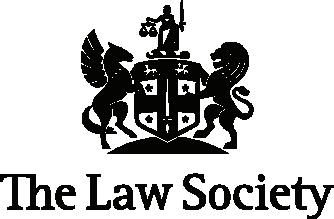
Mark will encourage members to participate in the member advisory forum to share their opinions and expertise with the Law Society and gain recognition at local and national levels for their contributions to the profession.
Mark said: “Solicitors are part of a diverse community, with many volunteering their time to strengthen the profession locally and nationally. As president, I want to recognise those contributions and to inspire more solicitors to raise their voices and help shape the future of the profession.”
Supporting solicitor wellbeing
Mark will also work with sector partners to speak out on mental health and wellbeing and to support solicitors in managing their own welfare.
This includes promoting the outcomes of LawCare’s Life in the Law survey**, which explores mental health and wellbeing in the legal sector.
Mark commented: “Long hours, high workloads and client care can have an impact on solicitors. It is critical that we continue the conversation about mental health and wellbeing and ensure that it is not stigmatised.
“This year, I aim to support solicitors by holding crucial discussions on wellbeing across the legal sector and by engaging with local law societies, communities and networks to ensure we are united in prioritising our members’ welfare.
“I will champion solicitor wellbeing, encourage the profession to become more inclusive and to provide the support that solicitors need to thrive.”
* https://www.lawsociety.org.uk/topics/ research/annual-statistics-report-2023
** https://lawcare.org.uk/life-in-the-law/
